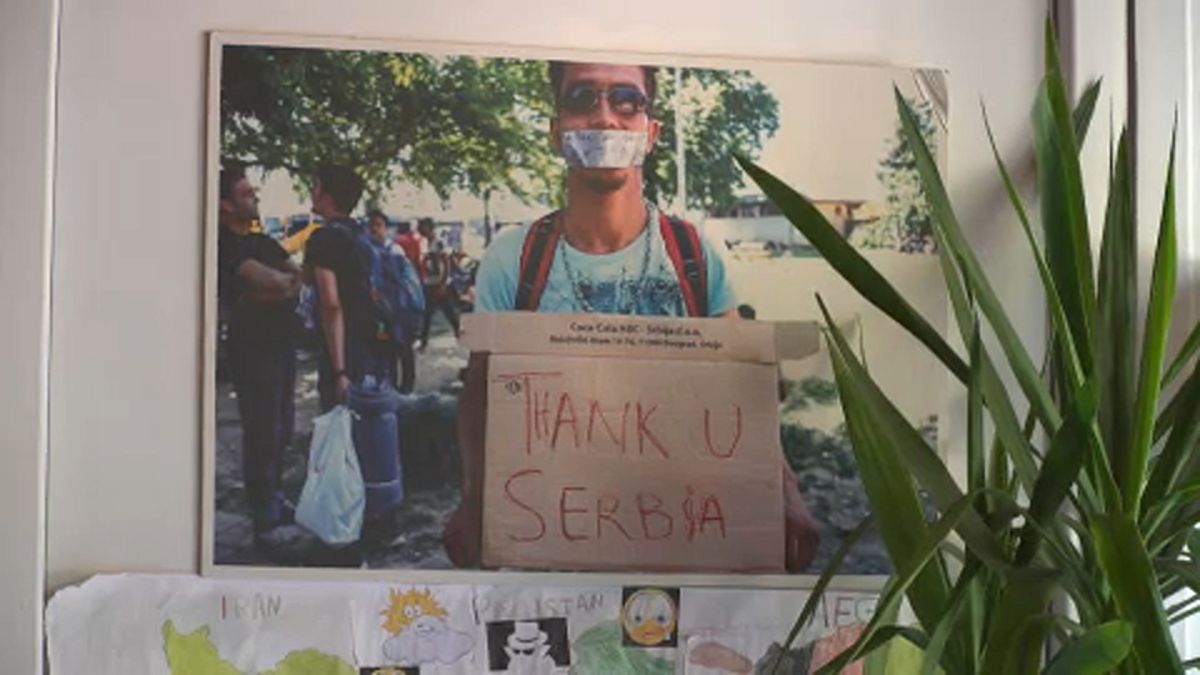Migrants hoping to reach the EU are stuck in Serbia because of tough Hungarian and Croatian border controls
When the path to Germany, the so-called 'Balkan route' was shut in 2016, migrants continued to arrive in Serbia, mainly from Turkey. They're aim: to reach the EU through bloc members Hungary and Croatia.
Today, migrants remain in Belgrade, but very few are seen in open spaces.
Park Luke Ćelovića, in the city centre, was once a magnet for people arriving in Serbia. But it has a very different feel to it today.
Euronews' Sandor Zsiros reported: "This park in the middle of Belgrade used to be the main meeting point for the refugees, hundreds of migrants used to sleep here, now you can see, this area, called by locals simply the refugee park, is completely empty."
With the authorities having cleared migrants from open spaces, they're now staying in camps, reception centres and hostels.
Among them, a Pakistani man who wants to go to Germany - but is stuck because of tough Croatian and Hungarian border controls.
"I'm staying here and going to Germany. First Bosnia, after Germany," he told Euronews, adding that he had already made two attempts to reach the EU.
Several groups help migrants in Belgrade. Info Park is among them. It helps with things like web access and information about their rights.
"Most of the time they came back to us with testimonies that those were the violent push-backs because the police from both countries, Croatia, Hungary and sometimes Romania violently pushed them back," said Stefan Tatalovic, from Info Park.
He continued: "Treating Serbia as a transit country it's like a win-win situation for both, for migrants and refugees who want to continue the journey and Serbia who want to stay that way because it's easier to organise that policy and also to be in a good relationship with the EU.
"You need to control migration, manage migration and control your border not to let too many people continue the journey but you can do it how Serbia is doing it, in a humane way, respecting human rights without violent push-backs."
